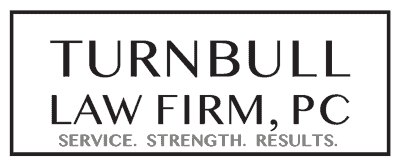Questions & Answers About Accident & Injury Claims in New Jersey
What types of cases do personal injury law firms handle in New Jersey?
Motor Vehicle Accidents, including car crashes, truck wrecks, motorcycle collisions, and pedestrian injuries, often lead to claims for medical expenses, lost wages, pain and suffering, and other related damages. These are among the most frequently litigated personal injury cases in New Jersey.
Slip and Fall Accidents, also referred to as premises liability cases, occur when someone is injured due to dangerous conditions on another person’s property—such as wet floors, cracked sidewalks, poor lighting, or uncleared ice and snow. Property owners may be held liable if they failed to take reasonable steps to prevent the hazard.
Product Liability Cases involve injuries caused by defective or unreasonably dangerous products. Manufacturers, distributors, and retailers can be held responsible if a design flaw, manufacturing defect, or inadequate warning results in consumer harm.
Workplace Injuries are typically covered by New Jersey’s workers’ compensation system, which provides benefits for medical costs and lost wages. However, if a third party—such as a subcontractor or equipment manufacturer—was responsible, injured workers may have the right to file a separate personal injury lawsuit.
Dog Bites and Animal Attacks can cause serious physical injuries and psychological trauma. Under New Jersey law, strict liability may apply, meaning dog owners can be held liable even if the animal had no prior history of aggression.
Wrongful Death Claims allow surviving family members to seek compensation when a loved one dies due to someone else’s negligence. This may involve fatal car accidents, unsafe work environments, or instances of medical malpractice.
Toxic Exposure Cases, or toxic torts, occur when individuals are harmed by exposure to hazardous substances such as lead, asbestos, toxic mold, or industrial chemicals—whether at home, work, or in public environments.
Birth Injuries arise when a baby or mother is harmed during childbirth, often due to medical negligence, failure to monitor, or delayed treatment. These injuries can result in lifelong challenges and substantial medical costs.
Social Security Disability Claims are available to individuals who can no longer work due to severe injuries, chronic illnesses, or permanent disabilities. An experienced attorney can help navigate the complex federal SSDI process and appeal denied claims.
Recreational Accidents, such as boating incidents, bicycle crashes, ATV rollovers, or playground injuries, often result from unsafe conditions, negligent supervision, or defective recreational equipment.
No matter the type of injury, if negligence played a role, you may be entitled to financial compensation. Speaking with a top-rated personal injury lawyer in New Jersey can help you explore your legal options and determine the best course of action for your case.
What types of damages can a personal injury lawyer in NJ help me recover?
Medical expenses may include both current and anticipated future costs related to the injury—such as hospital stays, surgeries, doctor visits, prescription medications, and rehabilitation therapies.
Lost wages refer to the income missed during recovery, as well as reduced earning capacity if the injury limits the ability to return to previous work or pursue new employment opportunities.
Pain and suffering compensation accounts for physical pain and emotional distress, including anxiety, depression, and loss of enjoyment of life stemming from the accident and resulting limitations.
Loss of consortium applies when the injury negatively impacts the injured person’s relationship with their spouse or partner, including the loss of companionship, emotional support, or intimacy.
Property damage compensation may be awarded to cover the repair or replacement of personal property—such as a vehicle damaged in a car crash, motorcycle accident, or commercial truck collision.
Punitive damages may be granted in exceptional cases involving gross negligence or intentional misconduct—such as drunk driving accidents or extreme workplace safety violations. These are designed to punish the responsible party and discourage similar future behavior.
Rehabilitation costs include ongoing care needs such as physical therapy, occupational therapy, or the use of assistive medical equipment to help restore function and support long-term recovery.
Loss of enjoyment of life compensation reflects the inability to participate in activities, hobbies, or social engagements that once brought meaning or pleasure before the injury.
Emotional distress damages can apply when the injury leads to lasting psychological impacts, such as PTSD, chronic anxiety, or sleep disorders.
Wrongful death damages may be sought by surviving family members when a loved one dies due to another party’s negligence. These damages may include funeral expenses, loss of income and support, and grief-related suffering.
Permanent disability or disfigurement compensation is available in cases involving amputation, paralysis, severe burns, or any condition that causes long-term impairment or visible change in appearance, affecting a person’s life and independence.
A qualified New Jersey personal injury attorney can help you assess the full extent of damages in your case and work to secure the maximum compensation available under New Jersey law.
How long do I have after an injury to file a lawsuit in
In certain cases, exceptions may apply. For example, in claims involving toxic exposure, medical malpractice, or injuries that take time to manifest, the deadline may begin when the injury is discovered or reasonably should have been discovered. Additionally, if the injured person is a minor, the statute of limitations may be extended beyond their 18th birthday.
Failing to file within the required time can result in losing your right to seek compensation. That’s why it’s crucial to speak with a knowledgeable personal injury lawyer in
What is the average settlement for a personal injury claim in New Jersey?
For minor injuries—such as soft tissue damage, sprains, or minor fractures—settlements may range from a few thousand dollars and are typically intended to cover basic medical costs and limited lost wages. For more serious injuries, including broken bones, traumatic brain injuries, spinal cord damage, or permanent disabilities, settlements can reach into the six or seven figures, especially if the injury leads to long-term care needs or significantly affects a person's ability to work and live independently.
Wrongful death claims and cases involving catastrophic injuries often result in substantially higher settlements. These may reach millions of dollars, particularly when they involve future lost earnings, lifelong medical expenses, and significant emotional or physical suffering.
Insurance policy limits are another important factor. The amount of coverage available through the at-fault party’s insurance policy often sets the ceiling for compensation—unless additional resources such as underinsured motorist coverage, third-party liability, or employer-related policies are available.
A skilled New Jersey personal injury attorney can help evaluate the full value of your claim, collect critical medical and accident evidence, negotiate with insurers, and fight for the maximum compensation allowed under New Jersey law.
How long do most accidents and other personal injury cases take?
More straightforward cases—such as slip and falls or minor car accidents with clearly established fault—often settle relatively quickly. However, cases involving serious injuries, disputed liability, commercial vehicles, or multiple responsible parties generally take longer to resolve. Additional delays can occur when insurance companies dispute claims, make low settlement offers, or purposely stall negotiations.
The severity of the injury is one of the most important timeline factors. When an individual requires ongoing medical treatment, attorneys often recommend waiting until the person reaches maximum medical improvement (MMI) before settling. This helps ensure that all current and future medical costs, lost income, and long-term effects are fully evaluated before finalizing compensation.
If the case proceeds to litigation, the timeline may extend significantly. Legal steps such as pre-trial discovery, depositions, expert reviews, and motions—combined with court scheduling and judicial backlogs in certain New Jersey counties—can push a trial date months or even years into the future.
Because every case is different, the best way to estimate how long your claim might take is by speaking with a knowledgeable New Jersey personal injury lawyer. An experienced attorney can assess your situation, manage medical documentation, communicate with insurers, and guide your case toward resolution as efficiently as possible—whether through settlement or trial.
Can I receive compensation if I was partially at fault for a slip and fall accident in
For example, if you slipped on a wet floor in a grocery store but were looking at your phone instead of paying attention to warning signs, the insurance company or court may determine that you were 20% at fault. If your total damages were $50,000, your compensation would be reduced by 20%, resulting in a recovery of $40,000.
Insurance companies and property owners often try to shift blame onto the injured person to reduce or deny claims. Working with an experienced slip and fall attorney in
Can I file a personal injury claim if I was injured at work in New Jersey?
If a third party—such as a subcontractor, equipment manufacturer, or property owner—was responsible for the injury, you may have legal grounds to seek additional compensation. For instance, if you were injured in a fall at a construction site due to faulty scaffolding, or suffered harm from defective machinery, you could file a personal injury lawsuit against the third party responsible.
Unlike workers’ comp, a third-party personal injury claim can allow for compensation beyond basic medical bills and partial wages. This may include pain and suffering, full wage replacement, loss of future earning capacity, and other non-economic damages that workers’ compensation does not cover.
An experienced New Jersey workers’ compensation and personal injury attorney can evaluate your case, identify whether both types of claims apply, and help you pursue the full compensation you’re entitled to under New Jersey law.
Can I qualify for Social Security Disability (SSDI) after a serious injury?
Eligibility for SSDI is based on several factors, including the severity of your condition, your inability to engage in substantial gainful activity, and your past work history. Injuries such as traumatic brain injuries, spinal cord damage, severe fractures, or other catastrophic impairments may qualify if they prevent you from consistently working or returning to your previous occupation.
The SSDI application process is often complex, and many initial claims are denied. An experienced New Jersey personal injury or Social Security disability attorney can assist in compiling the required medical documentation, submitting a strong application, and navigating the appeals process if necessary—greatly improving your chances of approval.
If your disability was caused by someone else’s negligence, you may also have the right to file a personal injury claim in addition to applying for SSDI benefits. These two legal paths can work together to provide both immediate compensation and long-term financial security.
How do I prove negligence in a personal injury case in NJ?
Duty of care means the at-fault party had a legal obligation to act in a manner that avoids causing harm. For example, drivers must follow traffic laws, property owners must keep their premises safe, and employers must provide hazard-free work environments.
Breach of duty occurs when the responsible party fails to uphold that legal obligation. This might include a driver running a red light, a landlord failing to repair a loose railing, or a store neglecting to clean up a spill that causes someone to slip.
Causation means you must show that the breach of duty directly led to your injuries. If a distracted driver hits your vehicle, or you fall due to unsafe flooring, their negligence must be shown as the proximate cause of your harm.
Damages refer to the actual losses you experienced because of the injury. These can include medical expenses, lost income, pain and suffering, emotional distress, and other economic or non-economic impacts. If there are no documented damages, there is no valid claim.
Proving negligence in New Jersey often requires compelling evidence, such as witness statements, surveillance footage, medical records, photographs, and expert testimony. An experienced New Jersey personal injury law firm can help collect, organize, and present this evidence to build a strong case and pursue the maximum compensation available under New Jersey law.
How do pre-existing medical conditions affect a personal injury claim?
For example, if you had a prior back injury, and a car accident caused additional damage or intensified your symptoms, you may still have a valid claim. The key to success in these cases is using medical records and other documentation to compare your condition before and after the incident, clearly showing that the accident made the condition worse.
It’s critical to be transparent about any pre-existing conditions, as insurance adjusters will thoroughly examine your medical history. An experienced New Jersey personal injury attorney can help you gather medical evidence, coordinate with your healthcare providers, and push back against any attempt by the insurance company to minimize or deny your claim based on pre-existing health issues.





















